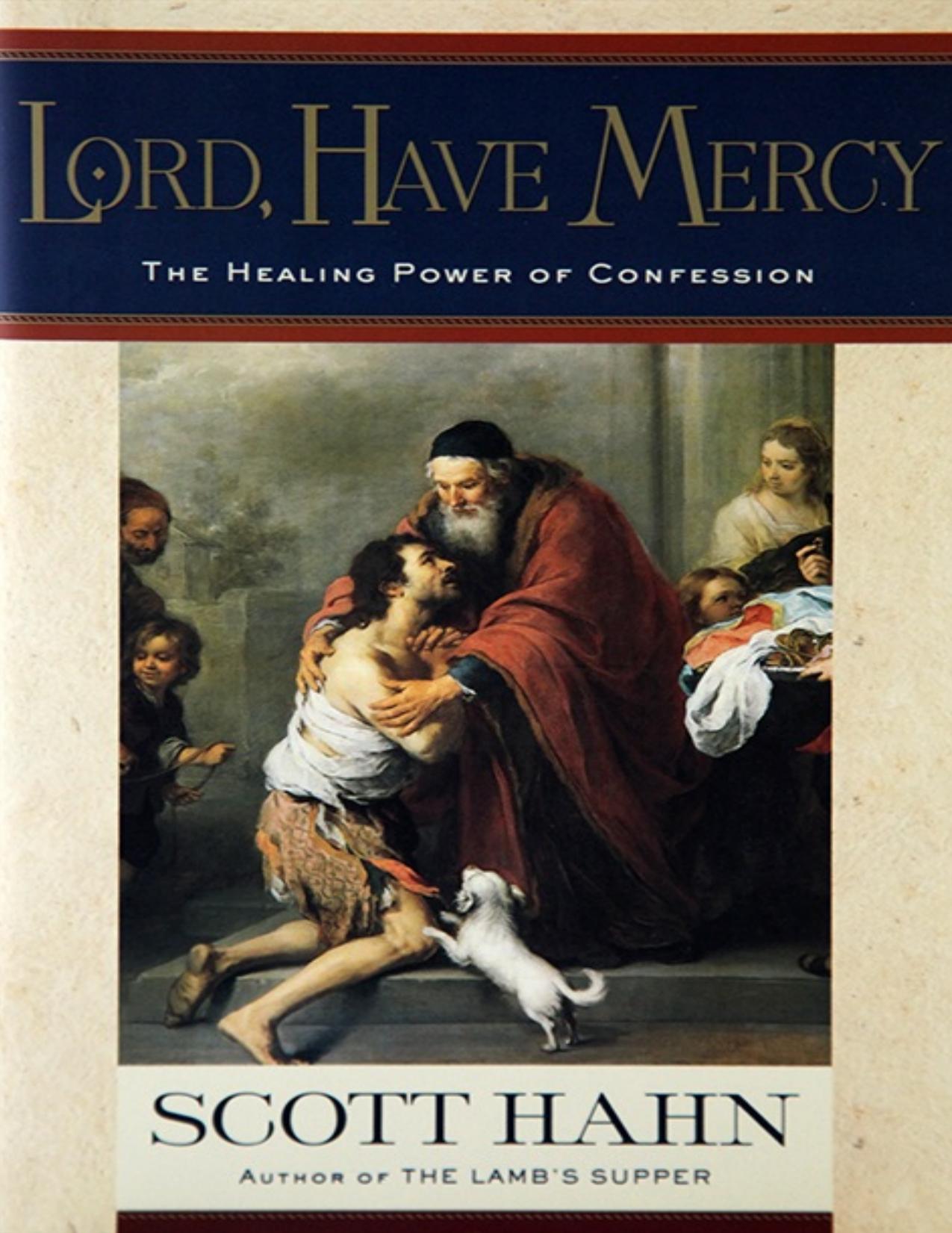Lord, Have Mercy: The Healing Power of Confession by Scott Hahn

Author:Scott Hahn
Language: eng
Format: mobi, epub, pdf
Tags: Religion, Catholicism, Christianity
ISBN: 9780385508773
Publisher: Image
Published: 2003-03-18T00:00:00+00:00
Homeward Bound
Previously, I said that the young man’s moral and financial ruin “coincided” with the natural disaster of a famine. I do not mean, however, that this was a chance occurrence. It was coincident, simultaneous, but it was no accident. Indeed, I’d say it was provident. For only such a catastrophe could have brought about the prodigal son’s conversion. It wasn’t a warm wave of nostalgia that set him on the road to his father’s house. It was hunger, shame, and the fear of death. As he came to his senses, he realized that it would be better to live as a slave to his father than to die, in a foreign land, as a slave to his sensuality. While he ached for a taste of pig fodder, the lowliest servants back home had “bread enough and to spare” (Lk 15:17).
So he began his return, and surely the long journey seemed longer still on an empty stomach. By the time he stood in sight of his father’s lands, his hunger and shame must have been as overpowering as his odor.
His father sighted him from afar. How could that be so if he had not been always on the lookout for his lost son?
The old man then does something remarkable. He runs down the road to greet his boy. This was just short of a cultural taboo. It was considered unseemly for a nobleman to run. But this patriarch put aside his greatness and dignity to greet his son and lavish his love upon him. He embraces his son—the Greek phrase is more evocative: he “fell upon his neck” (Lk 15:20).
The son began to give voice to his prepared speech, but after a few words the father had heard enough. “Father, I have sinned against heaven and before you.” The son’s contrition was imperfect, just a little more than a hankering after a full belly and a warm bed, but it was enough. For he had come to his home and he had acknowledged his sin.
The third-century commentator Origen notes that it was only after the son had shown some small contrition—only after he had made his confession—that the father brought him home. “He would not add the sin ‘against heaven’ if he did not believe that heaven is his fatherland, and that he did wrong when he left it. So, such a confession makes his father well disposed to him.”
Then, quite suddenly, a sin that had been mortal—a sin that had killed off the boy’s sonship, his inheritance, and his family life—was instantly forgiven, absolved, taken away: “for this my son was dead, and is alive again” (Lk 15:24).
Download
Lord, Have Mercy: The Healing Power of Confession by Scott Hahn.epub
Lord, Have Mercy: The Healing Power of Confession by Scott Hahn.pdf
This site does not store any files on its server. We only index and link to content provided by other sites. Please contact the content providers to delete copyright contents if any and email us, we'll remove relevant links or contents immediately.
Resisting Happiness by Matthew Kelly(3337)
The Social Psychology of Inequality by Unknown(3019)
Day by Elie Wiesel(2781)
Designing Your Life by Bill Burnett(2741)
The Giving Tree by Shel Silverstein(2337)
Human Design by Chetan Parkyn(2068)
The Supreme Gift by Paulo Coelho(1963)
Angels of God: The Bible, the Church and the Heavenly Hosts by Mike Aquilina(1958)
Jesus of Nazareth by Joseph Ratzinger(1811)
Hostage to the Devil by Malachi Martin(1802)
Augustine: Conversions to Confessions by Robin Lane Fox(1770)
7 Secrets of Divine Mercy by Vinny Flynn(1741)
Dark Mysteries of the Vatican by H. Paul Jeffers(1717)
The Vatican Pimpernel by Brian Fleming(1700)
St. Thomas Aquinas by G. K. Chesterton(1634)
Saints & Angels by Doreen Virtue(1604)
The Ratline by Philippe Sands(1572)
My Daily Catholic Bible, NABRE by Thigpen Edited by Dr. Paul(1499)
Called to Life by Jacques Philippe(1476)
